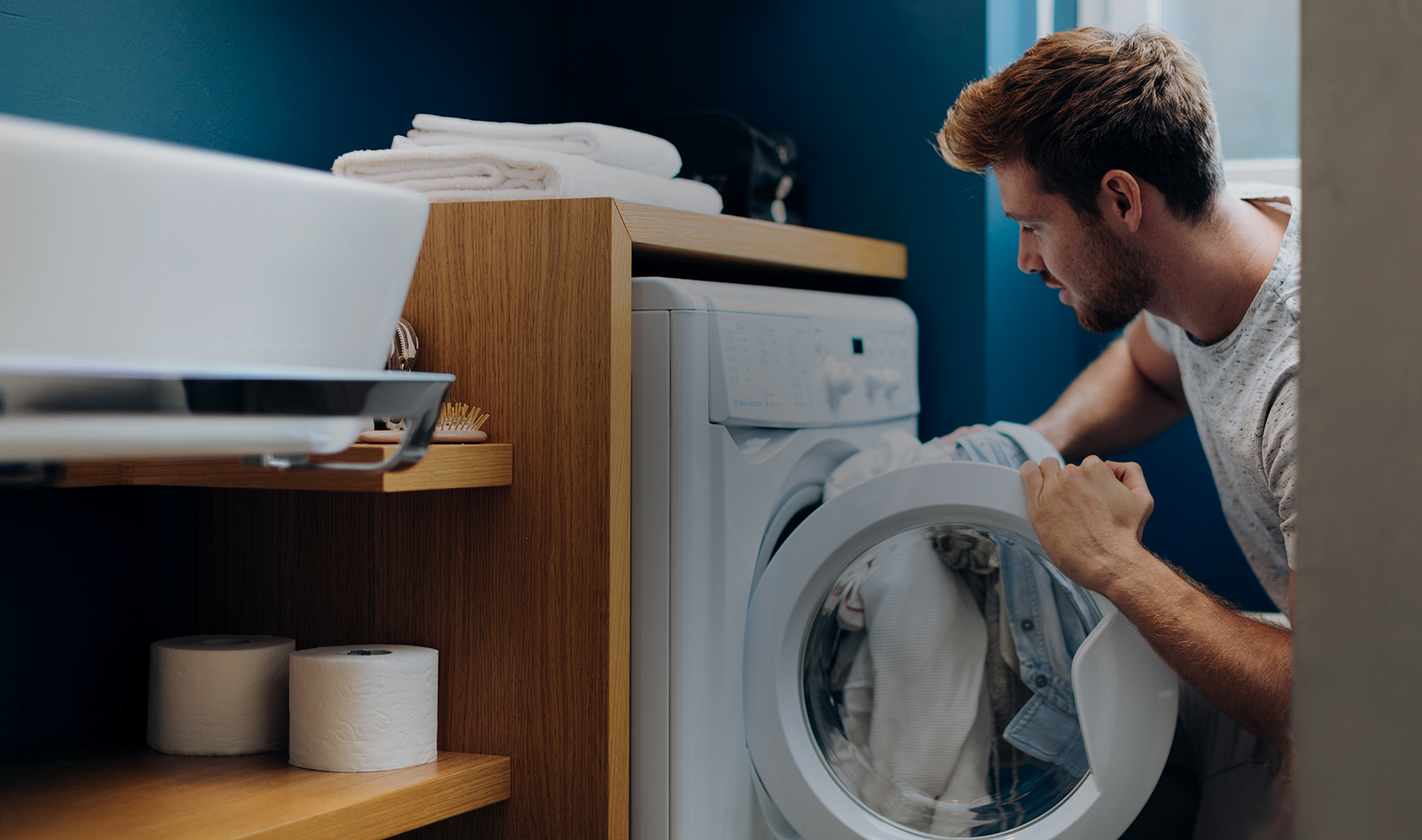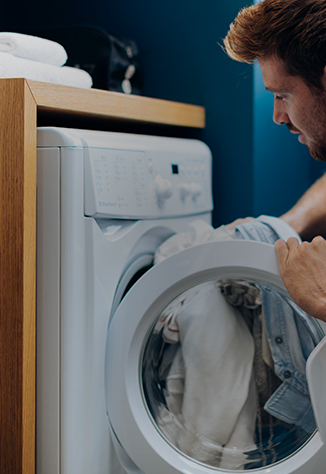as a new addition alongside a successful B2B strategy, was a challenge that delivered bright results.
Bringing sunshine home
Solar panels: everyone wants them or already has them. The number of providers is growing by the day, leaving the average consumer overwhelmed with choices. Sure, you want to make your home more sustainable, but which solar panels are the best, and why? And what should you pay attention to? If you had asked us a year ago, we wouldn’t have had an answer. But ever since SolarEdge approached us for a consumer campaign, that’s all changed. Now, when it comes to choosing a smart solar energy system, we can tell you everything about what inverters do, why optimizers boost efficiency, and how EV chargers can complete the system. Because just offering solar panels? That’s no longer enough to win the game.
From B2B to B2C
As a global provider of solar energy systems, SolarEdge primarily focuses on installers who handle both the installation and communication with consumers. A true B2B strategy. However, while their ‘fan base’ of installers continues to grow, SolarEdge also wanted to become top of mind with consumers. Because let’s be honest: if you had to name a solar panel brand… how many would you be able to come up with? We’d bet it’s no more than three, right?
Expanding your B2B activities with B2C efforts can strengthen your brand, but only if you know exactly who your target audience is and what they want to hear from you.
Pilot country The Netherlands
So, from a push to a pull strategy in the consumer market. The first step was building brand awareness among the target audience: they needed to know the name SolarEdge and associate it with something positive. The Netherlands became the first pilot country for an extensive brand campaign, which would later roll out across other European countries. GI was tasked with setting up, monitoring, optimising, and turning this consumer campaign into a success from start to finish. And trust us: we truly blew them away!

Before we could get started, we first needed to identify who the ‘right’ consumer actually is. Sure, you could target the entire Netherlands, but ideally, you focus solely on those receptive to your message. This, of course, applies to all campaigns. For SolarEdge, the aim was to target two specific personas. However, the question remained: were the assumptions about this audience correct? And as it happens, an online campaign is the perfect way to find out...
Living on sunshine
Before we could set up the campaign, GI first developed the overarching concept that would tie all communication together: Living on Sunshine. The focus was on living with (and on) solar energy to make your household run more smoothly and cost-effectively. From doing laundry and charging your car to playing video games on the couch; powered by the sun, everything becomes more fun, smarter, and more sustainable.
This 'Living on Sunshine' message became the foundation for all campaign materials, including YouTube ads, display banners, and social media ads. These materials all directed consumers to specific, dedicated landing pages tailored to their respective phase in the customer journey. We began with a brand awareness phase, where the communication was overarching. This allowed us to gather a large pool of relevant consumers, partly thanks to optimisation through A/B testing. These consumers were then retargeted during the engagement phase. All the insights we gained formed the foundation for the digital behaviour map, which we’d love to tell you more about later.
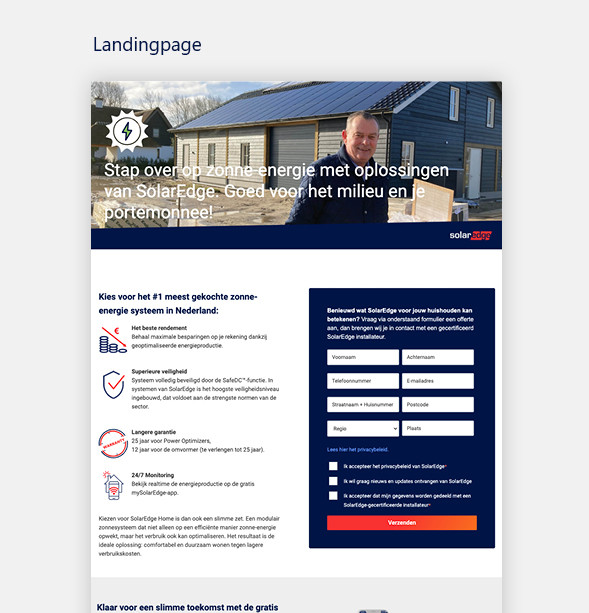
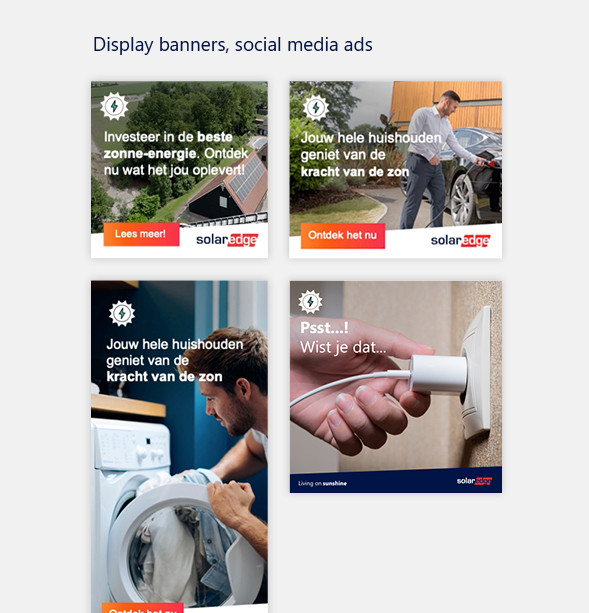
Mapping the online behaviour of your personas
The goal of the awareness phase, followed by the engagement phase, was to truly understand the target audience and introduce them to SolarEdge as a brand. In addition to the ads, we also created informative content, such as blogs on various relevant topics, enabling us to track which subjects resonated most with the audience. All of this helped us make our content as effective as possible and continuously optimise it.
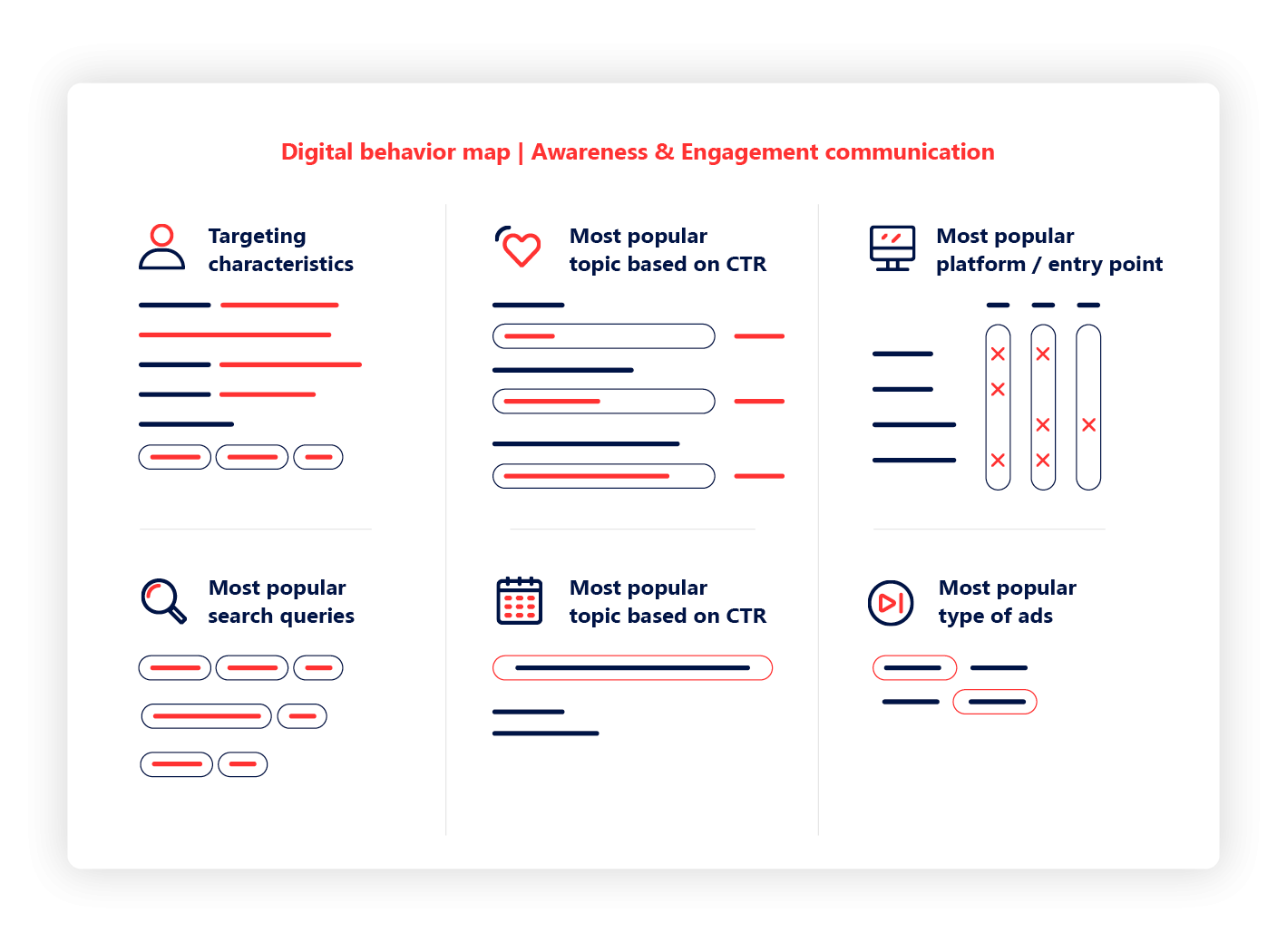
Through this exploratory approach to campaigning, we gained a deeper understanding of the personas and were able to create a digital behaviour map. This map captured the key characteristics of the target audience, identified the most popular (content)topics based on the highest CTR, and determined which social media platform was the most effective. We also analysed the most commonly used keywords on Google, the days when the target audience was most active, and the types of ads they preferred all based on data. This allowed us to confirm or challenge both our own and SolarEdge’s assumptions and instincts. Because, after all: data is knowledge.
A Digital Behaviour Map is the perfect tool to make personas tangible and run effective campaigns.
To lead or not to lead
In an awareness and/or engagement campaign, leads are not the priority. The focus is on building a brand and increasing visibility. Key KPIs such as reach and (unique) website visitors take center stage. These are aligned in advance to ensure everyone understands the objectives and what will be measured, always in comparison to market benchmarks. Of course, that was no different for SolarEdge. (Although, just between us: the campaign’s great success did result in dozens of leads! A sunny bonus, as we like to call it).
Fact-based optimisation
GI is a creativity-driven agency, but firmly rooted in data at the same time. Data provides us with the tools to continuously optimise our work, ensuring it becomes increasingly effective for the target audience. The results from SolarEdge below prove that this approach truly works!
95%
Better than benchmark
95% of the results were significantly better than the benchmark, indicating that the content is both relevant and spot-on for the target audience.
Beneficial
Cost-effective impact
In the awareness phase, nearly 3.5 million people saw our ads, with an average CPM of €1.53 (way below the benchmark of €2.50!).
13,20%
Searched and found
With a CTR of 13.20%, our search ads performed exceptionally well.
Want to know more
about this case?
Got questions after reading the case? Or feeling inspired to start something similar? Let us know via the form below!
Thanks for your message!
We'll get back to you as soon as we can.
